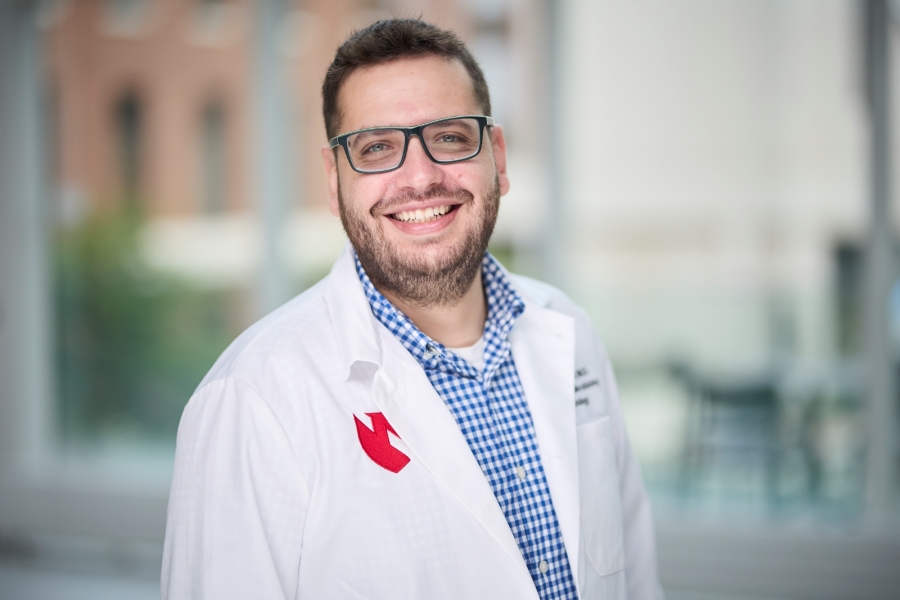A rare chromosomal abnormality found in some forms of lymphoma is getting a closer look at the University of Nebraska Medical Center.
Ahmed Sabri, MD, a hematopathology fellow in the Department of Pathology, Microbiology and Immunology, is performing cytogenetic and molecular analysis of t(9;14)(p13;q32) lymphomas with his mentor faculty, Arash Ronaghy, MD, PhD.
“We know the translocation of parts of chromosome 9 and 14 written as t(9;14 ) has been reported in some B cell lymphomas such as lymphoplasmacytic lymphoma (LPL), marginal zone lymphomas, and one Japanese group reported a case series on DLBCL,” Dr. Sabri said. “The previous reports focused on Fluorescence In-situ Hybridization (FISH) analysis without performing a full karyotype, or a full molecular profile of the t(9;14) lymphomas. Therefore, we want to report that. Furthermore, the breakpoints of the t(9;14) are close to a number of genes. So we would like to further identify the specific genes involved in the t(9;14) and if any additional mutations are included.
“Our project hopefully will better characterize t(9;14) lymphomas. So it provides a better understanding of when you have a lymphoma with this translocation, like maybe where should you go?” he said. “What mutations should you expect with this translocation?”
Dr. Sabri said they suspect that the PAX5 gene may be involved in the translocation, and so they are looking to see what the partner gene is. They are also investigating ways to screen the t(9;14) B cell tumors, looking for PAX5 and Multiple Myeloma-1 (MUM-1) immunohistochemistry (IHC) positivity. If successful, that would permit a more judicious use of the more expensive FISH probes to confirm the presence of immunoglobulin (IgH)-PAX5 fusion in cases already shown to be positive for PAX5 and MUM-1 by immunohistochemistry.
His study is made possible by the department’s Research Grant Awards, created in 2024. The awards provide up to $10,000 in research funding to residents and fellows. The aim of this program is to advance the experience and mentorship in clinical and translational research.
“I’m proud of the work Dr. Ahmed Sabri has done on this project. Molecular testing has shown additional genes involved that we did not initially expect. We are currently using FISH analysis to confirm the identity of the genes involved,” Dr. Ronaghy said.
Dr. Sabri earned his medical degree in Jordan before coming to the U.S. in 2019, spending one year of research at UC-San Diego. That was followed by a residency in anatomic and clinical pathology at Creighton University. After finishing his fellowship here, he will join Creighton in the fall as an assistant professor of hematopathology and surgical pathology.
